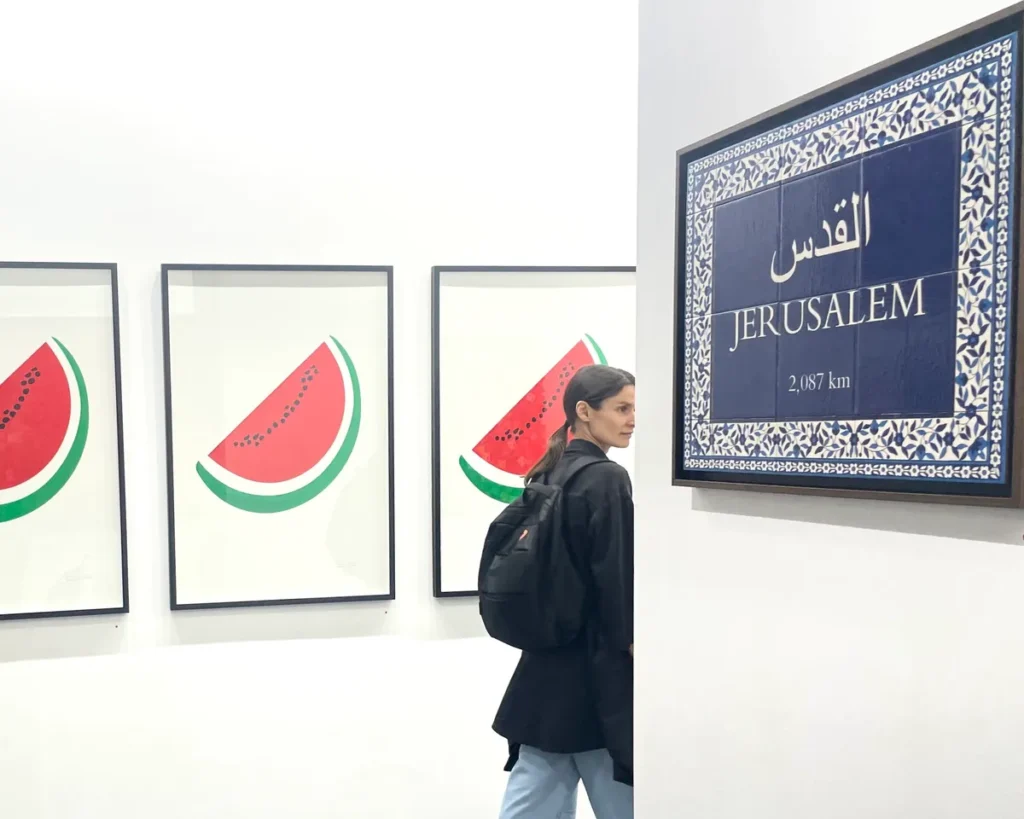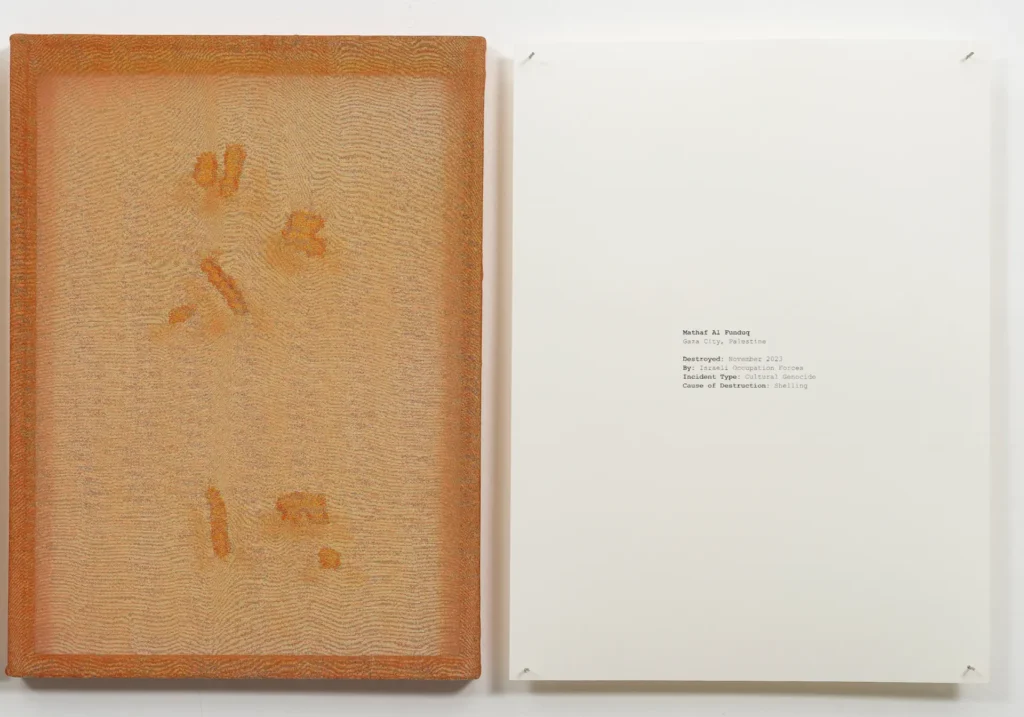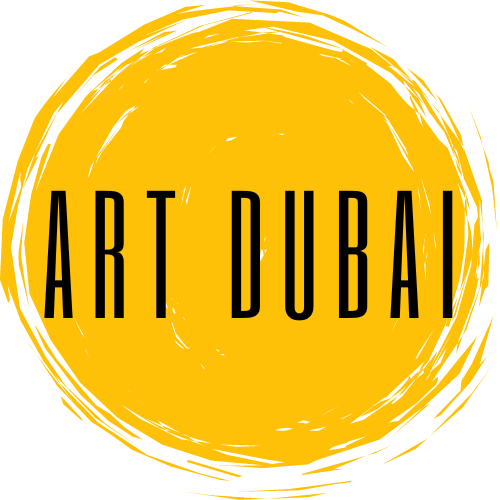At the 17th edition of Art Dubai, the ongoing Israel-Hamas conflict is a prominent theme, with many galleries using the platform to highlight Palestinian art. This year’s fair, running until 3 March, features a strong focus on the Global South, enabling galleries to bring attention to the crisis in Palestine, especially Gaza.
During the fair’s opening press conference on 28 February, Shumon Basar, director of Art Dubai’s Global Art Forum, referenced an Israeli military order from 2009 that prohibits Palestinians from collecting rainwater, verified by Amnesty International and the United Nations. Basar is guiding discussions on the ecological impact of the Israeli occupation of Palestine, one of several efforts at Art Dubai to foreground the ongoing crisis. The Gaza Ministry of Health reports that over 30,000 people have been killed in Gaza in the past five months following Hamas’s 7 October attacks in Israel, which resulted in around 1,200 deaths and 253 hostages.

Pablo del Val, Art Dubai’s artistic director, emphasized that “Palestine has been part of Art Dubai’s DNA since day one.” The Art Dubai Group (ADG) will donate 25% of pre-fair ticket sales to the Emirates Red Crescent to support vulnerable communities, following a similar pledge for its Downtown Design fair in October 2023.
Two Palestinian galleries are participating this year: Zawyeh Gallery, with locations in Ramallah and Dubai, and Gallery One from Ramallah. Zawyeh Gallery features works by three Palestinian artists, including Khaled Hourani’s prints of watermelons, a symbol of Palestinian resistance. Seven of these prints, priced at $2,800 each, sold by the end of the second VIP day.
Saher Nassar, a Gaza-born, Dubai-based artist, presents cartoon-like prints depicting harsh scenes like land watered with blood, symbolizing the destruction of Palestinian youth. His family home in Gaza was destroyed in recent bombings, and shipping art back to Palestine is challenging due to the risk of damage by Israeli forces.
Samar Martha, owner of Gallery One, faced a 24-hour journey with multiple checkpoints to bring her artworks to the fair. Her gallery features glass sculptures, videos, and prints by Manal Mahamid, including a silk screen work depicting 48 desert cactuses surrounded by the names of villages destroyed in 1948 during the Nakba. Despite challenges, the gallery has made sales to collectors from Lebanon, Britain, and the UAE, providing a crucial lifeline as art buying in Ramallah has stalled due to the war.

The Third Line in Dubai, directed by Sunny Rahbar, also highlights Palestinian resistance through works like Tarek Al-Ghoussein’s self-portrait wearing a keffiyeh. Other non-Palestinian galleries also address the Gaza conflict, such as Athr from Jeddah, featuring Saudi-Palestinian artist Ayman Daydban’s works that incorporate the Palestinian flag.
Nika Project Space showcases a large ceramic kitchen installation by Palestinian artist Mirna Bamieh, priced at €150,000, while Vadehra Gallery from New Delhi presents paintings by Praneet Soi juxtaposing playgrounds with Gazan landscapes. Chemould Prescott Road from Mumbai brings textile works by Dana Awartani, depicting destroyed heritage sites in Gaza, with two pieces sold to Emirati collectors for $21,000 each.
Despite mounting censorship in addressing the Gaza conflict in the US and Europe, Art Dubai provides a platform for Palestinian voices. Tagreed Darghouth’s paintings at Tabari Art Space depict olive trees felled by Israeli forces, reflecting the gallery’s commitment to Palestinian representation amid increased cancellations of Palestinian artist shows overseas.
Art Dubai’s approach aligns with its mission to spotlight underrepresented geographies. Artistic director Pablo del Val has steered the fair’s focus away from the West to reflect Dubai’s diversity. This year’s fair attracts high-profile visitors due to concurrent art events in the Gulf, though sales have been slow but promising. Notable sales include El Anatsui’s sculpture for $600,000 and Lynda Benglis’s sculpture for €160,000.
Dealers note an increase in sales of Palestinian-focused art as collectors seek to support artists affected by the crisis. Academic Reema Salha Fadda, speaking at Art Dubai, emphasized the importance of showing images of devastation as a form of resistance, urging the art world to confront uncomfortable truths.
